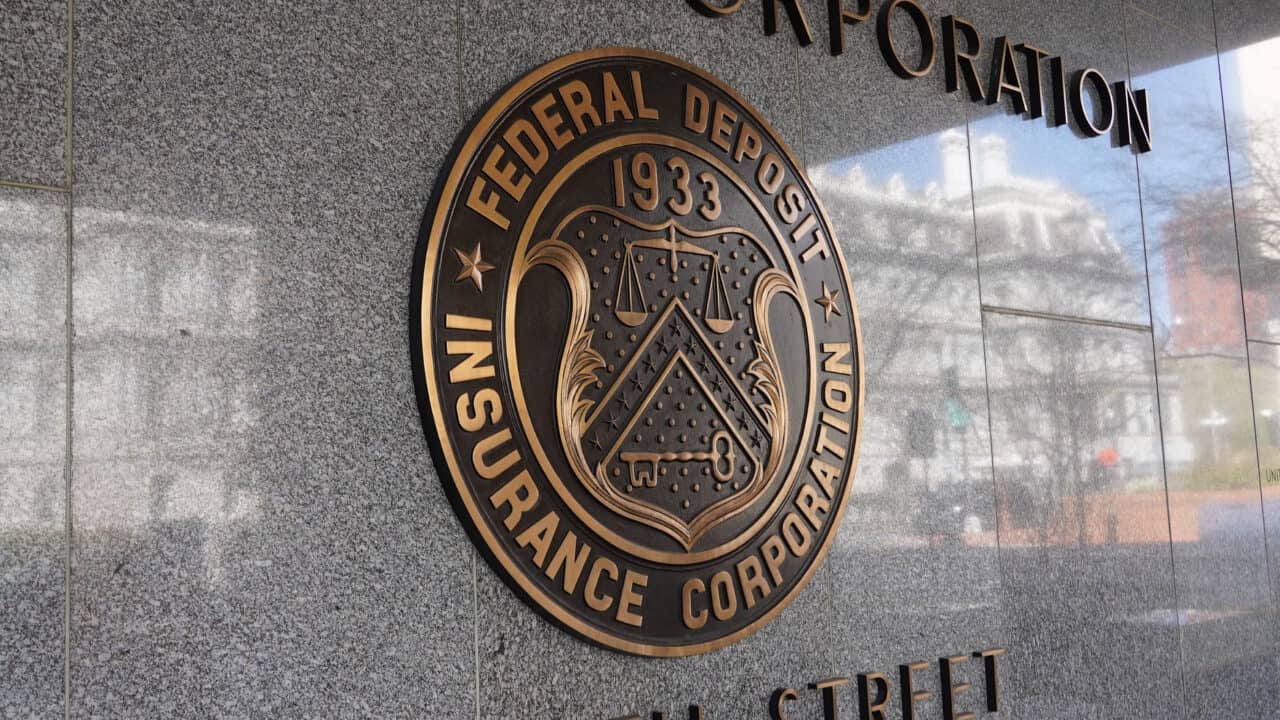 "FDIC Logo (Nikhilesh De/CoinDesk)" by CoinDesk is licensed under CC BY 2.0
https://www.coindesk.com/
"FDIC Logo (Nikhilesh De/CoinDesk)" by CoinDesk is licensed under CC BY 2.0
https://www.coindesk.com/
On September 29, 2023, American Banker’s BankThink opinion column published an op-ed by ATR’s Director of Financial Policy, Bryan Bashur. The piece discusses why expanding federal deposit insurance incentivizes risk-taking and will result in more bank runs in the future.
A couple of bills introduced in Congress wrongly expand deposit insurance by reverting to a program that was rejected by Republicans over a decade ago:
Members of Congress are focusing on the wrong reforms. On the same day the Senate Banking, Housing and Urban Affairs Committee held a hearing on deposit insurance, Sen. J.D. Vance, R-Ohio, introduced a bill to establish a new version of the Transaction Account Guarantee (TAG) program. The Payroll Account Guarantee Act of 2023 insures noninterest-bearing transaction accounts at all credit unions and any insured bank with less than $225 billion in assets. Similarly, a bill introduced by Rep. Blaine Luetkemeyer, R-Mo., would grant the Federal Deposit Insurance Corporation the authority to insure all noninterest-bearing transaction accounts for up to two months. In 2012, Republicans rejected an extension of the TAG program on the grounds that it largely turns banks into quasi-governmental entities. Bad ideas die hard.
According to the piece, the Federal Deposit Insurance Corporation (FDIC) has also proposed unsound reforms:
The FDIC has proposed flawed ideas such as expanded deposit insurance for business payment accounts, or even unlimited deposit insurance. Former Federal Reserve board member Dan Tarullo admitted at an event at the Brookings Institution that new deposit insurance reforms will not stop bank runs. According to Tarullo, the idea of increasing deposit insurance coverage specifically for business payment accounts is “not going to solve the run issue.” Unlimited deposit insurance would also be a bad idea because it could create “true zombie banks.” Granting unlimited deposit insurance comes with significant costs. According to a paper published by the Roosevelt Institute, it comes with more burdensome regulation of banks, “much greater risk-taking by banks” and leads to “much larger assessments on banks.”
Under the current deposit insurance framework, there are already private sector alternatives that allow depositors to protect their money:
There are also private sector alternatives that should be considered in lieu of increasing the deposit insurance limit or extending any temporary increase in deposit insurance coverage. For example, 56% of high-income countries have a form of private deposit insurance. Additionally, reciprocal, or “sweep” deposits can be used to cover more deposits with the current insurance cap. Sweep accounts are a private market solution to federal deposit insurance. For example, some community banks and regional banks offer insured cash sweep programs that allow depositors to spread around their money to “other FDIC-insured financial institutions” to earn higher interest and stay under the insurance limit.
Instead of increasing the deposit insurance limit, lawmakers should consider eliminating the “systemic risk exception”:
Congress should also eliminate the systemic risk exception. Federal statute allows the Fed, Treasury Department and FDIC to coordinate and determine whether to waive certain requirements and insure all depositors. The Biden administration did just that when Silicon Valley Bank and Signature Bank collapsed. By using the systemic risk exception, large, sophisticated, uninsured depositors now know that the federal government could do it again — propagating moral hazard. This argument is bolstered by a 2010 report from the Government Accountability Office. The paper explains that the systemic risk exception worsens risky bank behavior and sets the expectation for “similar emergency actions in future crises, thereby weakening their incentives to properly manage risks and also creating the perception that some firms are too big to fail.”
The op-ed concludes by stating that:
Raising the deposit insurance limit is an excuse for regulators to pile on additional regulations and capital requirements. To avoid an upward spiral of red tape, lawmakers need to stop focusing on misguided reforms and pay attention to the real problems: the systemic risk exception and moral hazard.
Click here to read the full op-ed.

